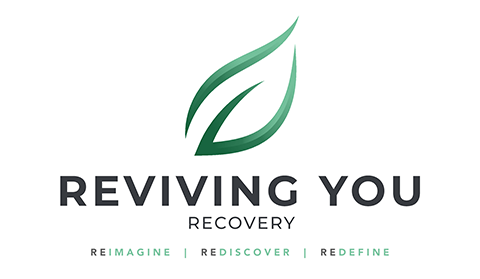What is Drug-Induced Psychosis and How is it Treated?

Recognizing Symptoms and Seeking Help
Drug-induced psychosis is a severe mental health condition triggered by the use of certain substances, including alcohol, illicit drugs, and prescription medications. It is a temporary state in which a person loses touch with reality, experiencing symptoms such as hallucinations, delusions, and severe confusion. For those struggling with substance abuse, understanding this condition is crucial for both prevention and treatment. Drug-induced psychosis can be terrifying for both the individual and their loved ones, but with timely and appropriate treatment, recovery is possible.
At Reviving You Recovery, we recognize the complexity of drug-induced psychosis and its profound impact on mental health. In this article, we explore the causes, symptoms, and treatment options for this condition, shedding light on how it can be addressed in a comprehensive recovery plan.
Understanding Drug-Induced Psychosis
Drug-induced psychosis refers to a state where the individual experiences psychotic symptoms, such as delusions and hallucinations, as a direct result of substance use. It can occur with the use of various substances, including stimulants, hallucinogens, cannabis, and alcohol. While it is generally temporary, if not treated appropriately, drug-induced psychosis can lead to long-term psychiatric issues, including the onset of chronic mental health disorders like schizophrenia.
Substances Commonly Linked to Psychosis
Certain drugs are more likely to induce psychosis than others, and the risk depends on factors like dosage, duration of use, and the individual’s mental health history. Common substances associated with drug-induced psychosis include:
1. Stimulants
Cocaine, methamphetamine, and other amphetamines can cause extreme psychosis, especially when used in high doses or over an extended period. This type of psychosis often manifests as paranoia, hallucinations, and erratic behavior.
2. Hallucinogens
Drugs like LSD, psilocybin (magic mushrooms), and PCP can distort a person’s perception of reality, leading to hallucinations and delusions.
3. Cannabis
High doses of THC, the psychoactive component of cannabis, can trigger psychotic episodes, particularly in individuals with a predisposition to mental health disorders.
4. Alcohol
Chronic heavy drinking, especially in cases of severe alcohol dependence, can lead to alcohol-related psychosis. This may occur during acute intoxication or during withdrawal (known as delirium tremens).
5. Prescription Medications
Certain medications, including stimulants for ADHD, steroids, and some anti-seizure drugs, can induce psychotic symptoms when misused or taken in excess.
Risk Factors for Drug-Induced Psychosis
While the use of psychoactive substances is the primary cause of drug-induced psychosis, several factors can increase the risk of an individual experiencing this condition:
- Genetic Predisposition: Individuals with a family history of mental illness, particularly schizophrenia or bipolar disorder, are more likely to experience drug-induced psychosis.
- Mental Health Disorders: Those already struggling with depression, anxiety, or other psychiatric conditions are at higher risk.
- Prolonged Substance Use: The longer someone uses psychoactive substances, especially in high doses, the greater the likelihood of experiencing psychosis.
- Polydrug Use: Using multiple drugs simultaneously can increase the risk of a psychotic episode, as the effects of different substances compound each other.

Get Your Questions Answered Now

Symptoms of Drug-Induced Psychosis
The symptoms of drug-induced psychosis can vary depending on the type of drug used and the individual’s overall mental health. However, some common signs include:
- Hallucinations: Seeing or hearing things that are not present. Visual and auditory hallucinations are most common.
- Delusions: Strong, irrational beliefs that are not based in reality. For example, believing that someone is plotting against them or that they possess superhuman abilities.
- Paranoia: Intense and irrational fear or suspicion of others, often accompanied by the belief that they are being watched, followed, or targeted.
- Disorganized Thinking: Difficulty maintaining logical thought patterns, leading to erratic and incoherent speech.
- Agitation or Aggression: Heightened irritability, restlessness, and, in some cases, violent outbursts.
- Confusion and Memory Issues: The individual may become disoriented, unable to recall recent events, or make sense of their surroundings.
The Impact of Drug-Induced Psychosis on Mental Health
While drug-induced psychosis is typically temporary, lasting hours or days after substance use, the experience can be deeply traumatic. Individuals may feel terrified and confused, not understanding what is happening to them. For some, psychosis can be so intense that they act out in ways that endanger themselves or others, including self-harm or violent behaviors. In cases where psychosis persists beyond the immediate effects of the drug, it may indicate an underlying mental health disorder. This is particularly concerning for individuals with a genetic predisposition to conditions like schizophrenia, where drug use can act as a trigger for the onset of a chronic psychotic disorder.
How is Drug-Induced Psychosis Treated?
At Reviving You Recovery, we emphasize a compassionate, evidence-based approach to treating drug-induced psychosis. Addressing both the immediate symptoms and the underlying substance use disorder is essential for long-term recovery. Here are some key components of an effective treatment plan for drug-induced psychosis:
1. Immediate Medical Intervention
The first priority in treating drug-induced psychosis is to ensure the safety of the individual. This may involve:
- Hospitalization: In severe cases, especially if the individual poses a risk to themselves or others, hospitalization may be necessary for stabilization. This ensures that the person is in a safe environment where they can receive round-the-clock care.
- Detoxification: If the psychosis is related to ongoing drug use, a medically supervised detox is essential. Detox allows the body to rid itself of the substances causing the psychosis and helps manage withdrawal symptoms.
- Antipsychotic Medications: In some cases, doctors may prescribe anti-psychotic medications to help alleviate the symptoms of psychosis, especially if they are severe or persistent.
2. Psychiatric Evaluation and Diagnosis
After the acute symptoms have been managed, a thorough psychiatric evaluation is crucial. This helps determine whether the psychosis was solely drug-induced or if an underlying mental health disorder is present. The evaluation should include:
- Mental Health Assessment: A detailed evaluation of the individual’s mental health history, including any prior episodes of psychosis or other psychiatric symptoms.
- Substance Use History: Understanding the pattern and extent of drug use is key to developing an effective treatment plan.
- Co-occurring Disorders: Many individuals with substance use disorders also struggle with co-occurring mental health conditions, such as anxiety, depression, or bipolar disorder. These must be addressed alongside the psychosis to ensure comprehensive recovery.
3. Comprehensive Substance Abuse Treatment
Drug-induced psychosis is often a symptom of a larger issue—substance abuse. Treating the underlying addiction is essential to preventing future psychotic episodes. At Reviving You Recovery, we offer a range of evidence-based treatments tailored to the individual’s needs:
- Behavioral Therapies: Cognitive Behavioral Therapy (CBT) is highly effective in helping individuals identify and change harmful thought patterns and behaviors related to substance use. Motivational Interviewing (MI) is another technique that helps individuals find the motivation to pursue recovery.
- Group Therapy: Peer support in a group setting allows individuals to share their experiences and learn from others facing similar challenges. Group therapy fosters a sense of community, reduces feelings of isolation, and provides a supportive network for recovery.
- Holistic Therapies: Incorporating therapies such as mindfulness meditation, yoga, and art therapy can help individuals manage stress, cope with cravings, and promote emotional well-being.
4. Relapse Prevention and Aftercare
Relapse prevention is a critical component of long-term recovery from drug-induced psychosis. Our aftercare programs at Reviving You Recovery focus on equipping individuals with the skills they need to maintain sobriety and mental stability, including:
- Relapse Prevention Planning: Identifying triggers and developing coping strategies to manage cravings and avoid situations that could lead to drug use.
- Ongoing Therapy: Continued therapy, whether individual or group-based, is vital for maintaining mental health and addressing any lingering symptoms of psychosis or substance use disorders.
- Support Groups: Participating in 12-step programs or other support groups can help individuals stay connected with a sober community and receive ongoing encouragement in their recovery journey.
Conclusion
Drug-induced psychosis is a frightening and potentially dangerous condition that requires prompt, professional intervention. At Reviving You Recovery, we understand the complexities of this condition and are committed to providing comprehensive, compassionate care. Through a combination of medical treatment, psychiatric evaluation, and holistic addiction recovery programs, we help individuals regain control of their lives and build a foundation for long-term health and sobriety.

If you or a loved one is struggling with drug-induced psychosis or substance use disorder, reach out to Reviving You Recovery. Together, we can help you navigate the challenges of recovery and reclaim a life of clarity, stability, and peace.
We Accept Most Insurances
We are in network with:






We know insurance coverage can be a source of uncertainty for people. We make sure you have all the information necessary. The great news is health insurance can potentially cover the total treatment costs. If you don't have insurance, we offer cash payment options for our treatment programs and are committed to working with clients regardless of financial situations.
